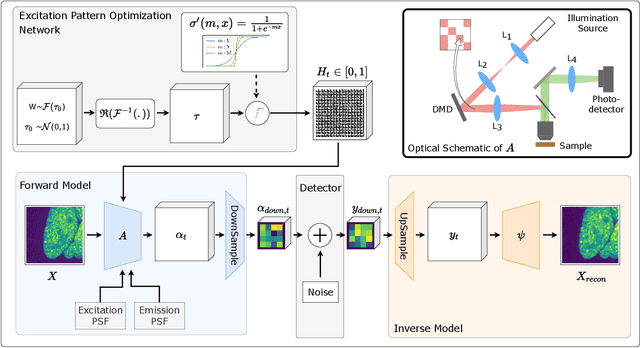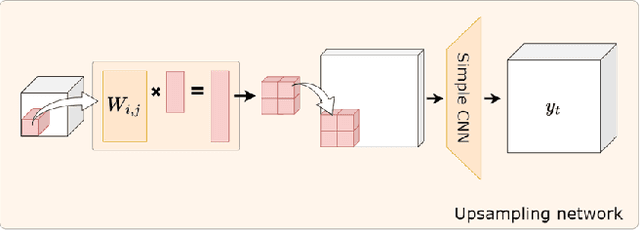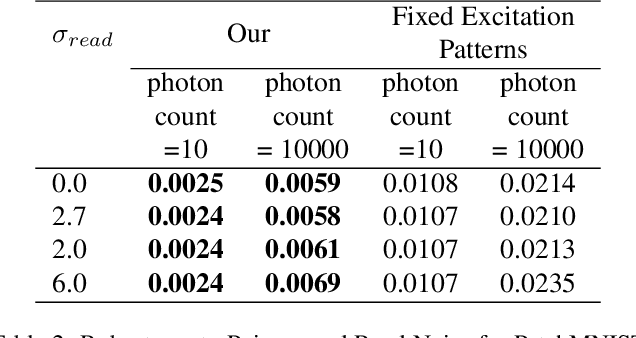Andrew Seeber
Differentiable Microscopy for Content and Task Aware Compressive Fluorescence Imaging
Mar 28, 2022



Abstract:The trade-off between throughput and image quality is an inherent challenge in microscopy. To improve throughput, compressive imaging under-samples image signals; the images are then computationally reconstructed by solving a regularized inverse problem. Compared to traditional regularizers, Deep Learning based methods have achieved greater success in compression and image quality. However, the information loss in the acquisition process sets the compression bounds. Further improvement in compression, without compromising the reconstruction quality is thus a challenge. In this work, we propose differentiable compressive fluorescence microscopy ($\partial \mu$) which includes a realistic generalizable forward model with learnable-physical parameters (e.g. illumination patterns), and a novel physics-inspired inverse model. The cascaded model is end-to-end differentiable and can learn optimal compressive sampling schemes through training data. With our model, we performed thousands of numerical experiments on various compressive microscope configurations. Our results suggest that learned sampling outperforms widely used traditional compressive sampling schemes at higher compressions ($\times 100- 1000$) in terms of reconstruction quality. We further utilize our framework for Task Aware Compression. The experimental results show superior performance on segmentation tasks even at extremely high compression ($\times 4096$).
 Add to Chrome
Add to Chrome Add to Firefox
Add to Firefox Add to Edge
Add to Edge